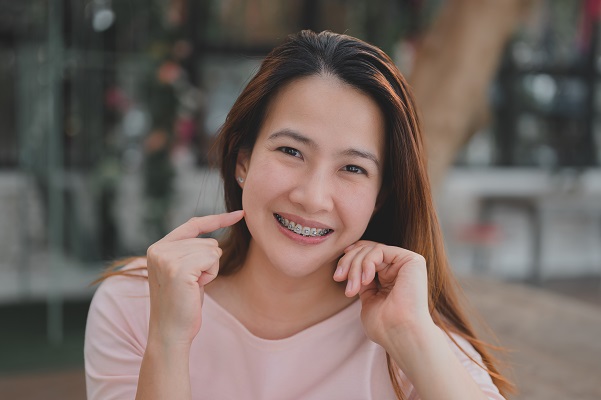



Braces can be a daunting prospect. However, our team will walk you through the entire process to ensure you comprehend and are comfortable with your treatment plan. The first step in achieving this is the initial consultation with our orthodontist, where you can ask as many questions as necessary. Below we have outlined three questions to prepare you for your consultation.
What to ask during your braces consultation
What are the different types of braces?
Contrary to popular belief, there is more than one type of braces. Our orthodontist will assess the patient’s individual needs during the consultation and recommend one of the following:
- Metal braces: These are the original braces that date back 100 years. However, their aesthetic has improved drastically over time. Also known as traditional braces, the brackets and wires are made of stainless steel. The metal brackets are applied to the front of the teeth, and the wires are connected through each bracket, applying a gentle force.
- Self-ligating braces: This involves a unique system of wires and brackets used in place of elastic ligatures. The self-ligating bracket has a built-in mechanism that automatically closes it when placed on the tooth. This eliminates the need for elastic ligatures previously used to hold the archwire in place.
- Lingual braces: These consist of metal or plastic wire and brackets bonded to each tooth’s backside. In some cases, the orthodontist may use rubber bands for added retention.
- Ceramic braces: Also known as invisible or clear braces, the brackets and wires are made from colorless and transparent materials, blending in with the patient’s gums and teeth. Additionally, they are applied the same way as metal braces. They are also designed to work with the patient’s saliva to keep them clean while adjusting their smile.
How long do braces take?
Treatment duration varies. It depends on the type of braces and the severity of the patient’s bite or malocclusion. In some cases, patients only need to wear their braces for six months, while others may need them for over two years. Additionally, if a patient responds quickly to treatment and follows all the orthodontist’s recommendations for their care and lifestyle changes, they may be able to shorten their treatment time.
How will my life change with braces?
The main lifestyle changes will come from food choices and adjustment appointments. No matter the type of braces a patient receives, they should avoid the following types of food:
- Uncut hard foods (i.e., apples, carrots, celery, raw broccoli, popcorn)
- Chewy foods (i.e., candy, gum, caramel)
- Tough meats (i.e., dried meats, tough steaks)
After determining the braces type the patient will receive, our orthodontist will provide a more detailed list of foods to consume and avoid.
The patient must also schedule several visits to our office throughout their treatment. During each visit, the orthodontist will check for any problems, fix broken brackets or wires, monitor alignment changes, and tighten the braces as needed. Our team will also remove any signs of plaque or tartar around the braces to ensure they function properly.
Schedule your consultation today
We hope this article has helped prepare you for your consultation. If you have any additional questions about braces and treatment, we encourage you to have them ready for your appointment. Write them down, if necessary. Our team is here to help guide you or your teen from start to finish.
To learn more about our services, visit https://www.brooksideorthodontics.com or call our Stockton office at (209) 732-1124 to schedule an appointment.
Check out what others are saying about our services on Yelp: Read our Yelp reviews.
Recent Posts
An orthodontist has various treatments to help patients achieve a straighter smile. While it is possible to get orthodontic treatment from other dental providers or even online, choosing a specialist like an orthodontist to guide your treatment can be the safest, quickest, and most comfortable route. Understanding why orthodontist-led treatments are the preferred choice for…
You may have seen someone wearing ceramic braces without even knowing it. These are most well-known for their discreet appearance and are ideal alternatives for patients who are concerned about how noticeable their braces would look. Read on to learn more about why ceramic braces are trusted among orthodontic professionals.Ceramic braces are among the most…
Are you searching for an "orthodontist near me"? Read on to learn more. Having crooked or unevenly spaced teeth is not just an aesthetic issue. For many, the most noticeable change is in their level of self-image. Your teeth alignment makes it easy for plaque to build up, which in turn increases your risk of…
Clear aligners are one of the most popular methods in orthodontics to address issues with alignment. Over the years, the technology behind aligners has improved greatly, thus allowing for more and more issues to be resolved. In addition to the versatility behind clear aligners, they offer an array of benefits that other approaches do not…


